Journal Boards
Editor in Chief
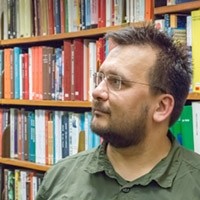

Editorial Board
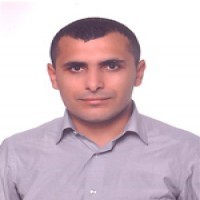
İSTANBUL TEKNİK ÜNİVERSİTESİ/MAKİNE FAKÜLTESİ/MAKİNE MÜHENDİSLİĞİ BÖLÜMÜ/MAKİNE MÜHENDİSLİĞİ ANABİLİM DALI/

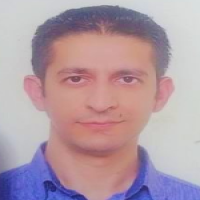

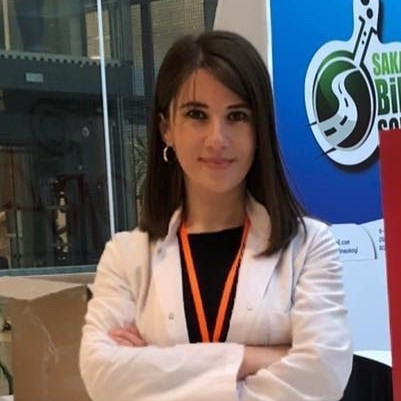
Doç. Dr. Nuray Güy, Sakarya Üniversitesi Fen Fakültesi Kimya Bölümü Fizikokimya Anabilim Dalı’nda öğretim üyesi olarak görev yapmaktadır. Lisans ve yüksek lisans eğitimlerini Pamukkale Üniversitesi Kimya Bölümü'nde tamamladıktan sonra, doktora derecesini 2017 yılında Sakarya Üniversitesi Fizikokimya programından aldı. 2023 yılında ise Erciyes Üniversitesi’nde post-doktora araştırmalarını tamamlayarak nanomalzeme sentezi ve katı faz ekstraksiyon uygulamaları üzerine uzmanlaştı.
Araştırmaları, çevre dostu sentez yöntemleri, fotokatalitik hidrojen üretimi, nanokompozitlerin antibakteriyel ve fotokatalitik uygulamaları, su ve gıda örneklerinde ağır metal giderimi gibi sürdürülebilir kimya ve nanoteknoloji konularına odaklanmaktadır. TÜBİTAK ve üniversite destekli çok sayıda ulusal projede yürütücü veya araştırmacı olarak görev almıştır. Özellikle fotokataliz, fotokatalitik/fotoelektrokimyasal hidrojen üretimi, nano yapılı adsorbanlar ve sensör uygulamaları üzerine uluslararası hakemli dergilerde 30’dan fazla yayını bulunmaktadır.
Bilimsel üretkenliği birçok ödülle takdir edilen Dr. Güy, 2022 yılında Sakarya Üniversitesi'nden “Uluslararası Etki Ödülü”nü ve 2019’da The International ASET Inc. tarafından “En İyi Yayın Ödülü”nü almıştır. Ayrıca, çeşitli bilimsel kitaplarda bölüm yazarlığı yapmış, ulusal ve uluslararası kongrelerde birçok sözlü ve poster sunumu gerçekleştirmiştir.

Fieild Editors

Maden Yüksek Mühendisi Prof.Dr.Hasan HACIFAZLIOĞLU
-İTÜ Maden Fakültesini 2002 yılında 3'üncülükle bitirdi. BEU Fen Bilimleri Enstitüsünde 2006 yılında Yüksek Lisansını (Yüksek Mühendis), 2009 yılında da Doktorasını (Dr) tamamladı. Bu süre zarfında önce Metek Madencilik Şirketinde Proje Müdürü olarak, ardından Karbomet Madencilik Şirketine geçerek Maden Tesis Müdürü olarak görev yaptı. Bu esnada mühendisliğin temellerini sahada öğrendi.
-2010 yılında Yardımcı Doçent, 2015 yılında Doçent, 2021'de Profesör olmuştur. Halen İÜ-Cerrahpaşa'da çeşitli dersler veren Hacıfazlıoğlu’nun alanıyla ilgili 4 patenti, 2 kitabı, 250'nin üzerinde ulusal ve uluslararası yayını, çeşitli dergilerde atıfları, hakemlikleri, TÜBİTAK Projesi ve çok sayıda ödülü bulunmaktadır. Türkiye'de elekler hakkında yazılmış olan (Endüstriyel Eleme Teknolojileri) ilk ve tek kitap Hacıfazlıoğlu'na aittir. Ayrıca, Hayata Düz Bakış Açısıyla Zengin ve Mutlu Olmanın Sırları kitabının yazarıdır.
-Maden Yüksek Mühendisi Hasan Hacıfazlıoğlu'nun bilimsel yayınlarının hemen hemen tümü uygulamaya yöneliktir. Yayınlarında tesisler için yeni makineler tasarlamış, yeni prosesler sunmuş ya da mevcut tesislerin verimliliğini arttırmıştır. Uygulamaya yönelik çalışan ender bilim insanlarından ve mucitlerden biridir. Bu yüzden Türkiye'nin en prestijli proje yarışması olan “Mehmet Kemal Dedeman Proje Yarışması” nda Birincilik ödülü almıştır. Ayrıca, TÜBİTAK ve İstanbul Üniversitesi ile Maden Mühendisleri Odası tarafından verilmiş olan çok sayıda ödülü vardır. %100 Türk sermayesi ile geliştirmiş olduğu cevher ve kömür yıkama makineleri halen pek çok maden işletmesinde başarı ile kullanılmaktadır.
-Kömür yıkamada devrim niteliğinde olan ÇMS, Siklojet, ÇTA ve kuru kömür temizleme cihazı FGX gibi cihazların Türkiye'deki ilk uygulayıcısıdır. Düşük verimle çalışan mevcut Cevher ve Kömür Hazırlama tesislerinin verimliliğinin arttırılmasıyla ilgili pek çok uygulaması mevcuttur. Son çalışmalarında; derin mühendislik tecrübesi ve teorik bilgisi ile sorunlu tesislerin yüksek performansla çalışması için çözüm ve öneriler üretmektedir.
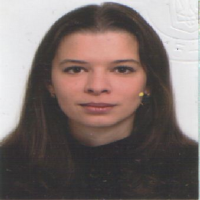


İTÜ Kimya Mühendisliği Doktorası ile yine aynı üniversitenin Cevher Hazırlama Mühendisliği Bölümü Doçent öğretim üyesi ve Yüksek Lisans Enstitüsü Nanobilim ve Nanomühendislik Programı program koordinatörüdür.

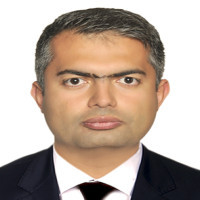

Dr. Mohamed Mahmoud Nasef is currently a Professor at Chemical Engineering Department Universiti Teknologi Petronas. He also served as a professor at Universiti Teknologi Malaysia (UTM) in Malaysia-Japan International Institute of Technology (MJIIT), and Faculty of Chemical Engineering, Centre of Hydrogen Energy for the past 15 years. Dr. Nasef obtained his Master and PhD in Chemical Engineering from UTM, in 1996 and 1999 respectively.
Dr. Nasef is a registered expert in the international Atomic Energy Agency (IAEA) in the field of radiation processing of polymers and he conducted a number of IAEA expert missions in Turkey, China, Brazil, Egypt and Thailand. He was also a chief investigator of the coordinated research projects (CRP) awarded by IAEA to Malaysia (2008-2010 and 2020-till now).
Dr. Nasef has vast experience in planning and execution of R&D in the field of functional polymeric materials for energy, environmental bio medical applications and related separation applications. His research interests include but not limited to development of polymer electrolyte membranes, ion exchange resins, adsorbents, nanofibrous scaffolds, polymer catalysts and permeation membranes in addition to their uses in relevant applications such as fuel cells, PEM water electrolyzers, lithium & vanadium redox flow batteries and membrane separation processes. He is also specialized in polymer modifications with high energy radiation techniques.
Dr. Nasef published more than 150 articles in renowned international journals together with 12 book chapters, 12 reviews and 4 edited books with more than 5000 citations and H-Index of 39.
Dr. Nasef is an active member of various international scientific associations such as the Electrochemical Society, American Chemical Society, European Membrane Society, Institute of Chemical Engineers, and Material Research Society. He is also a member of the editorial board of Journal of Applied Membrane Science, Journal of Technology and electronic Journal of applied electrochemistry
Dr. Ramzi Khiari is a senior lecturer in the Department of Textile Engineering at the Higher Institute of Technological Studies in Ksar-Hellal (Monastir, Tunisia). He graduated with a master’s degree in Textile Engineering from the National Engineering School of Monastir, in 2007 and then went on to complete his Ph.D. in 2010 from the University of Monastir and Grenoble INP in France. In 2017, he was awarded the diploma of "Habilitation Universitaire" from the University of Monastir, and then in 2020 he received the diploma "Habilitation à diriger des Recherches" from Grenoble INP. His research interests focus on the valorization of biomass at multi-scale levels, namely: fibers, nanocellulose, lignin, hemicelluloses, and their use as potential raw materials in several industrial applications (Textile, papermaking, polymeric materials, composites, and nanocomposites).

DNA LC-MS/MS Natural Product Chemistry Antioxidant Activity Chromatography Flavonoids Phenol High-Performance Liquid Chromatography
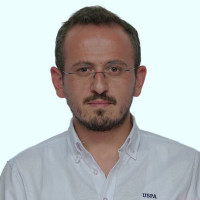
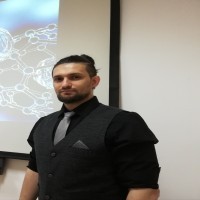
Lisans derecemi Orta Doğu Teknik Üniversitesi Fizik bölümünden aldım. Sonrasında Akdeniz Üniversitesi Biyofizik bölümünde Yüksek Lisans eğitimimi Prof. Dr. Murat CANPOLAT danışmalığında tamamladım. Akdeniz Üniversitesi'ndeki eğitim sürem boyunca medikal görüntüleme sistemleri, bu sistemlerin optik tasarımı ve yazılımı üzerine çalışmalar yaptım ve bu çalışmaların bir kısmını hala sürdürmekteyim. Anadolu Üniversitesi Biyoteknoloji Bölüm Başkanı Gülay BÜYÜKKÖROĞLU danışmanlığında Eskişehir Teknik Üniversitesi Nanoteknoloji bölümünden doktora derecemi aldım. Doktora tezimde nanobiyoteknolojik ilaç hedefleme sistemleri üzerine çalıştım. Özellikle multiferroik (manyetoelektrik) fiziksel yapılar üzerinde çalıştım.







 Web
Web
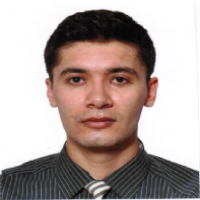

Academic Experience: Yalova University Lecturer (2012-2015)
Advisory Board
Language Editors
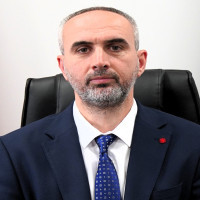
ÖZER UYGUN received the B.Sc., M.Sc., and Ph.D. in industrial engineering from Sakarya University, Turkey, in 1999, 2002, and 2008, respectively. He started his academic position at Marmara University and worked as a Lecturer from 2000 to 2003. Then, he was a Research Assistant at Sakarya University from 2003 to 2008, where he is currently an Associate Professor. He was a Researcher in the EU FP6 Network of Excellence (I*PROMS: 2004-2009) and FP6 STREP Project (IWARD: 2007-2009). He successfully completed the EFQM Assessor Training in Brussels in 2015. His research interests are Operations Research, Optimization, Decision Making, Multi-criteria Decision Making, and Artificial Intelligence.
Aditorial Asistants
The Open Journal of Nano(OJN) deals with information related to (but not limited to) physical, chemical and biological phenomena and processes ranging from molecular to microscale structures.
All publications in The Open Journal of Nano are licensed under the Attribution-NonCommercial 4.0 International (CC BY-NC 4.0) license.

